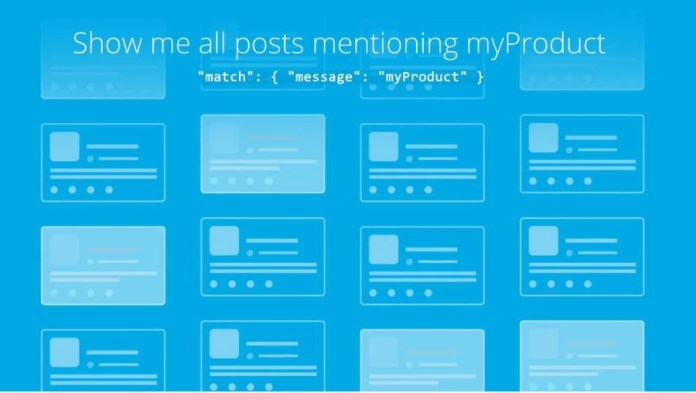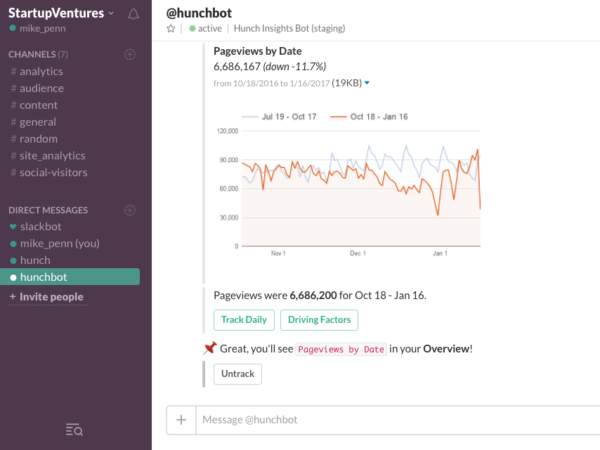A successful marketing campaign is key to attracting customers to your business. Your marketing strategy should also be designed to keep the customers you already have. Here in this post, we will outline the most powerful artificial intelligence in marketing examples now.
A marketing campaign with a strong brand voice and clear identity can really help you stand out amongst your competitors.
However, devising an effective marketing campaign can also be time-consuming and costly. Luckily artificial intelligence is here to help.
As developments are constantly being made in the wider world of artificial intelligence, artificial intelligence marketing is also benefitting.
From targeted ad campaigns to intelligent chatbots Ai in marketing has numerous benefits.
Here are just some of the ways that artificial intelligence in marketing is making a real impact on the world.
Table of Contents
Artificial Intelligence And Its Application In Programmatic Advertising

One of the key ways of publicising a business is with an effective advertising campaign.
For that reason, many marketing departments will allocate their pay per click budgets to larger companies such as Facebook and AdWords.
In 2017 eMarketer determined that Google controlled a massive 40.7% of the U.S. digital ad market. In second place is Facebook who has cornered a not-insignificant 19.7% of the market. Between them, these two companies have over 50% of the market.
Whether a business uses outsources the advertising campaign to a pay per click agency or allows their in-house marketing team to run the campaign the chances are that the majority of the work is done by humans.
AI can optimised advertising buying
However, this may not be the case for much longer.
Making sure that your adverts appear to the right person at the right time can be a time-consuming and complicated task.
However, this is one area where applications for Ai in marketing can make a real impact.
Every day developments are made that improve the effectiveness of artificial intelligence marketing. This includes developments in the world of pay-per-click campaigns. For example, artificial intelligence and smart, machine learning algorithms can allow a business to identify new and effective advertising channels, possibly long before their competitors have identified the same market.
Artificial intelligence driven systems will allow artificial intelligence marketing professionals to test numerous platforms quickly and efficiently, analysing the resulting data and identifying potential targets.
This artificial intelligence marketing optimisation is being spearheaded by Google and Facebook.
While the major companies are leading the way, omnichannel pay-per-click campaigns can also benefit from their innovations by using similar artificial intelligent driven tools and algorithms.

One such artificial intelligence marketing platform is Albert. This is, essentially, an autonomous media buying application that can be used to identify and target specific markets and customer groups.
Using artificial intelligence marketing in this way not only speeds up research and marketing optimisation but requires little human input.
It can also be used for optimising copywriting, layouts and customer targeting.
This means that even small marketing teams can have the same impact on the market as their larger counterparts
The Use Of Artificial Intelligence Marketing Can Enhance Forecasting and Analytics
 Unsurprisingly, the data-heavy field of forecasting and analytics is another area where artificial intelligence marketing applications can make a real impact when it comes to smart customer engagement and churn prediction artificial intelligence, in particular, machine learning algorithms, can play a major role.
Unsurprisingly, the data-heavy field of forecasting and analytics is another area where artificial intelligence marketing applications can make a real impact when it comes to smart customer engagement and churn prediction artificial intelligence, in particular, machine learning algorithms, can play a major role.
For example, businesses can use machine learning algorithms to identify disengaged customers who may, potentially, be on the verge of taking their custom to a competitor.
Artificial intelligence driven applications can be used to gather large swathes of data and analyse it quickly and accurately.
This is one area where Ai in marketing applications are already far more efficient than their human counterparts.
Applications and tools focused on enhancing artificial intelligence marketing can then use the information they have collated to build predictive models that can be tested on real customers.
This, in turn, provides valuable information to the marketing industry including, for example, what stage of the churning process a customer is in.
Predicting Customer Churn with AI

When properly applied, Ai in marketing is able to differentiate between quick churn customers, people who will stop using a product shortly after starting to use it, and late churn customers, people who will potentially have a long-lasting relationship with your brand.
The information generated by artificial intelligence marketing applications can then be used to devise incentives and marketing campaigns to encourage late churn customers to continue engaging with the brand.
One such company that is using artificial intelligence-driven applications to predict customer churn and derive strategies for continuing customer engagement is Vidora.
By using Ai in marketing, and in particular churn prediction, in this way Vidora and other companies like deepsense.ai, are able to analyse omnichannel events and identify customers who are not engaging with the brand.
Artificial intelligence is useful in this way as it can quickly identify warning signs of low customer engagement such as lower usage time.
Artificial intelligence driven applications can then send the disengaging users offers, emails and notifications, encouraging them to re-engage.
This is not the only way that applying artificial intelligence marketing situations can benefit businesses.
Propensity Modeling

There is also an opportunity for artificial intelligence marketing applications to power propensity modeling. This is the practice of using machine learning algorithms to analyse historical data.
This data can then be used to form a propensity model which theoretically will allow users to make accurate predictions about the real world.
Information gained from propensity modeling can be applied to numerous areas of marketing, including the growing field of predictive analytics.
This is the process of using the data gathered to make predicts how the customer will behave.
These predictions include which customers are most likely to purchase something, the price point a customer is most likely to convert at and which customers are most likely to become return customers.
Propensity models can also be used to score leads, this will allow sales teams to establish how “hot” a lead is and determine how much time should be devoted to it.
This is a key benefit for B2B businesses that function with a consultative sales process which can see converting a sale taking up a considerable amount of time and expense.
Allowing the team to focus on the most relevant leads not only saves their time and energy but also improves their efficiency and success rates.
MORE – Data Science – 8 Powerful Applications
The Emergence of Chatbots and Recognition Software

Chatbots are increasingly becoming part of the online world. If in recent years, you have interacted online with a helpful customer service rep then the odds are that you have interacted with a chatbot.
Increasingly these clever little chatbots are leading the way for artificial intelligence marketing and brand interactions, particularly in the world of customer support.
As technology continues to develop smart technologies, such as chatbots, become increasingly better at creating personalised content than actual humans.
The same rule applies here as with many other areas of artificial intelligence, the more information the chatbot is able to access the more accurate they are.
As the pioneers of artificial intelligence marketing are realising chatbots aren’t limited to solely interacting with the customer.
Sephora Chatbot – Kit Bot
The Kik bot, developed by Sephora, begins its interaction with a mini quiz designed to help the bot learn more about the user’s makeup likes and dislikes.

If the human user shows an interest in engaging more with a certain product then the Kik bot can open a next level dialogue box. Again this is designed to give the artificial intelligence marketing tool more information.
This development by Sephora shows that artificial intelligence drive chatbots can lead the way in not only researching marketing demographics but can also help shape new forms of content marketing.
With the growth in open chatbot development platforms, such as chatfuel and manychat, it is also becoming increasingly easy for anybody to create their own chatbot. This means that this level of artificial intelligence marketing is not beyond the reach, or the budget, of even the smallest companies.
Leading the way in this is Facebook, the company intends to make its Messenger app the main destination for people to interact with companies virtual ambassadors.
This means that smaller companies can make use of Facebook’s powerful smart bot development tools. Facebook has already created the wit.ai bot engine which allow you to modify the bots with sample conversations.
Developed after beta testing of Facebook Messenger’s own chatbot, M, the bots are capable of learning from customer interactions meaning that over time they become more accurate and helpful.
Chatbots are not the way that artificial intelligence is impacting on advertising and marketing.
Like chatbots, speech recognition is also beginning to make an impact on the artificial intelligence marketing world.
Speech and Image Recognition

Amazon’s Echo is one of the biggest success stories to date. It is particularly popular as it allows users to make purchases or order taxis with just the power of speech. While Google develops its own versions, other companies such as Baidu and their Duer chatbot, are developing their own chatbots that are just as effective.
Automated image recognition is another area of artificial intelligence marketing and online personalisation that is benefitting from developments in artificial intelligence applications.
Thanks to developments in this field Google Photos is capable of recognizing places and people as well as images with accuracy of around 97%. This information can be used by savvy marketing professionals to highlight usage of their brand.
This same technology is also being used by other major brands such as Facebook and Pinterest.
For those in artificial intelligence marketing the improvements in image recognition could see an improved amalgamation between online interactions and physical store visits.
Increasingly physical stores are using facial recognition software to trace customers’ in-store visits. This information is then linked to videos in their customers’ profiles.
As many as 59% of U.K. fashion retailers admit to using some form of facial recognition software in their stores.
This information, when combined with artificial intelligence marketing tools such as powered push notifications allows brands and stores to send real-time discount offers and welcome messages to individual visitors.
Artificial Intelligence Optimises Search Features
As the role of artificial intelligence marketing grows it is also impacting on the intelligence of search features.
Today a Google search is far more intelligent than it has even been in the past. This improved capacity means that not only are you more likely to find the right information with only a vague search term but that you can quickly find the ideal product on Amazon or the perfect movie on Netflix.

This is also having an impact on eCommerce and marketing. Elasticsearch is one such company that is increasingly mainstream largely thanks to the benefits it can have for marketing campaigns as well as customer website interactions.
Elasticsearch is a scalable search engine that supports multitenancy. This means that it can scan all kinds of data sets, documents and other pieces of information returning relevant results quickly and efficiently.
Technologies such as Elasticsearch allow smaller businesses and e-commerce stores to have a search function that goes beyond the basic, simple matching of keywords search.
Data as a Service organisation, like Indix mean that users can create a search that combines data from a range of large sources.
This informs the individual’s personal product search and means that marketing departments don’t have to spend time educating any search models that you create.
Artificial intelligence marketing tools and machine learning applications also allow for search engines to operate software that is able to correct common spelling mistakes.
This means that a search isn’t derailed by a misplaced letter or a piece of poor grammar. Google has explained in-depth much of their work and research in this area on its “Inside Search” website.
The personalization of The Online Experience As Powered By Artificial Intelligence
 As we have already discussed Artificial intelligence driven machine learning algorithms can be used to optimise programmatic media buying, effectively targeting adverts at the most pertinent customers.
As we have already discussed Artificial intelligence driven machine learning algorithms can be used to optimise programmatic media buying, effectively targeting adverts at the most pertinent customers.
What were originally intended to be artificial intelligence marketing tools or applications can also be used to recognise undesirable sites, such as those promoting terrorism, and remove them from the list of sites that display this form of advertising.
When applied correctly artificial intelligence can be used to enhance the experience of visitors to websites, this is termed intelligent personalization.
Artificial intelligence marketing professionals, in particular, are recognising the benefits that artificial intelligent algorithms can have in this area.
For example machine learning driven algorithms can be used to quickly analyse thousands of data points relating to a singly user.
These data points will include things such as location, the device they are using, demographics, etc. The smart technology at play here can then help the website display the most relevant adverts and promote the most relevant content.
Taking this one step further behavioral personalization means that push notifications can be created that are specific to the individual user. This can greatly enhance a marketing campaign.
It allows for the right message can be delivered to the right person at the right time, enhancing the chances of brand interaction.
Machine learning algorithms are capable of swiftly searching vast swathes of data allowing the application to match the most relevant adverts to the user.
Consistent use of machine learning applications allows marketing professionals to optimise the thousands of variables meaning that advertisement placement is becoming more and more effective.
33% of Marketing Professionals used AI in marketing for personalization
A 2017 Real-Time Personalization Survey, conducted by Evergage reported that 33% of the marketing professionals they surveyed had used Ai in marketing to deliver personalized web experiences.
The survey also asked the marketing professionals about the benefits, as they perceived them, of artificial intelligence driven website personalization.
63% of respondents believed that this method resulted in increased conversion rates while 61% had seen customer experiences improve.

Amongst the many companies looking to make use of this technology is Pandora. Like many other music streaming services they are combining the abilities of human curators with machine learning algorithms to suggest new songs that their users may enjoy.
This use of artificial intelligence driven software allows Pandora a chance to gain an advantage over their competitors. Something that their marketing team will happily promote campaigns and adverts.
Artificial intelligence driven applications can also recognise when data flows either stop or increase unexpectedly. AI tools such as Hunch can monitor your analytics every second, helping you to stay informed.
Meanwhile, Slackbot, another AI-powered application, can analyse Google Analytics data and provide insightful reports on general performance and large-scale changes in data.
That information can help you keep websites up and running perfectly, as well as address anomalies as they arise.

Sales are a key part of any business and are vital marketing strategy behind shifting a certain product. However, discounts can hurt your bottom line.
Often, people who would pay the higher price for a product wait until there is a sale, this may save them money but it hurts your businesses profit margins. Dynamic pricing can counteract this.
Artificial intelligence-driven machine learning applications can target special offers only at those people who would otherwise not buy the product. This application allows you to increase your sales without harming your profit margin.
The Impact Of Artificial Intelligence Generated Content
 Sometimes termed natural language generation, an artificial intelligence created content, has incredible potential. Gartner has estimated that by the end of 2018 20% of all business content generated will be generated by intelligent applications.
Sometimes termed natural language generation, an artificial intelligence created content, has incredible potential. Gartner has estimated that by the end of 2018 20% of all business content generated will be generated by intelligent applications.
While today applications for Ai in marketing are limited the possibilities are endless. Similarly, current artificial intelligence driven applications can’t write an opinion piece or a blog post offering best practice advice.
However, this is not a development that can be ruled out in the future. Currently, artificial intelligence driven applications can currently create data-focused, simple pieces of content such as profit and loss summaries or hotel descriptions that can be used to drive people to your website or company.
As technology improves the work created by artificial intelligence driven programs will only become more sophisticated.
Each piece of artificial intelligence generated content is dependent on the rules and formats of its creator.
This means that you can use the applications to create marketing content that conforms with your brand message and appeals solely to your audience. This is done by picking relevant elements from datasets in order to create a human-sounding article.
AI Written and curated Content

One such program, ‘WordSmith’ produces 1.5 billion pieces of content in this manner each year.
Some artificial intelligence marketing tools such as Rocco can suggest fresh social media content that your brand’s followers are likely to engage with as well as creating relevant and original content.
As well as creating new content artificial intelligence can also power smart content curation.
This allows your website and online presence to engage with visitors and customers in a more effective way by highlighting content that is relevant to them. The most common version of this is the “customers who bought A also bought B” part of most sites.
However, it can also be used to personalise site messaging and blog content promotion. Subscription businesses such as Netflix also use machine learning algorithms to curate and promote relevant content to each user.
Another area where the application of artificial intelligence marketing can make a real impact is in the content curation of emails. Marketing and sales teams can spend hours each week compiling and scheduling the weekly emails to customers.
Smart subscriber segmentation
 While smart subscriber segmentation applications doesn’t yet allow you to deliver a personalised email to each individual customer it is probably not that far away.
While smart subscriber segmentation applications doesn’t yet allow you to deliver a personalised email to each individual customer it is probably not that far away.
When it does come it will be an incredibly popular and useful step in the personalization of artificial intelligence marketing campaigns.
Currently, artificial intelligence marketing tools are capable of targeting groups and potential customers with the most inviting offers.
Demand Metric conducted a study in 2016 that found 80% of marketing professionals believed that personalized content is more effective than “unpersonalized” content.

Artificial intelligence driven algorithms can be used to map subscribers website usage and experience.
Combining this with email browsing data allows marketing professionals to understand the individual customer’s relationship with the brand or content.
This information can then be used to drive algorithms that identify hyper-contextual content to create one-on-one personalized emails.
These dynamic emails can be compiled on a range of topics such as previous website interactions, the time spent on a page, customer wish lists and the customers previous interactions with branded emails.
Furthering this dynamic emails can be used to apply machine learning generated insights and predictive analytics to create a propensity model.
This can establish a subscribers propensity to buy certain categories, sizes and colors through their previous behavior. This information is then displayed in the email.
Additionally, information such as stock levels and relevant deals or offers is all correct when the customer opens the email.
Similar to targeted advertising re-targeting uses machine learning applications to establish the content most likely to bring customers back to a site or brand.
Historical data, the habits of similar customers and other pieces of information can all be used to power a machine learning-powered prediction model that can optimise re-targeting advertising campaigns, making them as effective as possible.
Conclusion
Marketing campaigns and marketing professionals can only benefit from the presence of Ai in marketing.
As we have seen Ai in marketing increasingly allows marketing professionals to engage with customers on a one to one basis.
However small your business or company may be, if done correctly you will be able to integrate artificial intelligence into your marketing campaign both effectively and without spending huge amounts of money.
Using Ai in marketing allows you to efficiently and accurately analyse the large swathes of data that is necessary for an effective marketing campaign.
It also allows you to personalise the customer experience, the more relevant the marketing is to the customer the more likely they are to engage with your product or brand.
As well as Ai in marketing the development of chatbots as support assistants or interactive tools is also benefiting the interaction between customer and company.
Open source platforms mean that these artificial intelligence marketing tools are increasingly available to even the smallest business, meaning that they need not be dwarfed by the big brands.
As further developments in the world of artificial intelligence marketing are made marketing campaigns can only benefit by becoming more personalised and effective.
Images: Flickr Unsplash Pixabay Wiki & Others



















